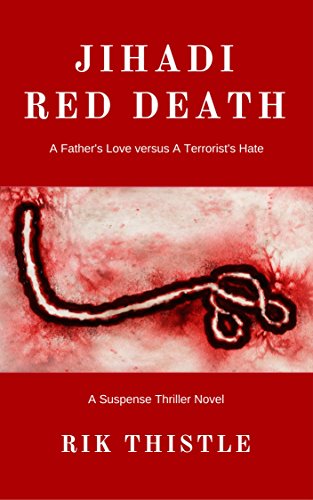When writing a novel, sometimes the most difficult part is getting started. I was in your shoes several years ago. I wanted to write a fiction novel but didn’t know how to start.
Then when on an airplane flight to Europe for business, I used a notebook to write each chapter in paragraph form. The first chapter consisted of four paragraphs.
No character development, no dialog, just the storyline. The second chapter was six paragraphs and the novel got its real start. After forty some chapters I had the initial basis for the novel. I was running a company at the time and didn’t have time to write a book, but ten years later I retired, pulled the notebook out of my desk and started on the project.
If you have a story idea, outline it. Then develop each character; write about them physically, their background, their education, their work history, their friends, and family. I used a single page to write about the main character to try to develop his profile. Then I wrote a similar summary about each main character as they came into focus in the book. That helped me to tell their story, in their voice.
After starting the book, I was able to look at the character profile when writing dialog. It’s important to get into the mind of the character to write effectively. Does the character have an accent? Is he or she from a poor or rich background, urban or rural, internationally born? Simple things like how they dress or walk, or what they like to eat or drink can help the reader to identify with the characters. I tried to link some of their key characteristics with the story to give fullness and interconnect the characters.
One of the biggest issues I faced was that the story spanned the United States, Europe, the Middle East and Asia. In my previous working life, I did travel quite a bit but I needed to expand into regions where I had never been. In the story, I did use locations that I knew. Several of the locations were very familiar to me. I lived in or near several so I incorporated local knowledge into the book to give it a local feel.
Write about what you know and where you know. However, there were multiple locations that I had never traveled to. Being a thriller fiction novel based on terrorism, many of my locations were in areas I could not travel to. So, I spent several months doing research on each location used in the book. Syria, Lebanon, Afghanistan, Iraq, Pakistan, and Iran were countries where I needed to do research and understand the local people, dress, customs and the military situation there.
My notes filled dozens of pages but helped me bring some reality to the story. I also had to research viruses, the U.S. Navy SEALS and the Central Intelligence Agency with the same detail.
The dialog is usually tough for writers. How do you tell the story using character dialog without droning on and on? How do you tell the reader pertinent information without spelling it all out? Does the character have specific information, some key insight or knowledge that takes the story in one direction or another? What I tried to do is get into the mind of the character, write honestly and hopefully with clarity.
Then there is the ending. Do you bring the story to the conclusion so that the reader has closure? Do you have a cliffhanger and a twist at the end that nobody saw coming? Do you leave the story open for a sequel? These are questions you’ll have to answer fairly early in your book. Do you plant clues in the novel that a reader at the end will say, “Ah, I remember why that happened.” Or do you completely blindside a reader?
I tried to give the reader clues and also inside information on what was happening. I wanted the reader to be a part of my story, know all of the details and understand the flow of the storyline. There were several surprises, but all were disclosed at some point to the reader throughout the story.
Finally, there is the style of the book. I prefer fiction novels that have short chapters; that move the reader around in the story from character to character, from event to event. My book, Jihadi Red Death has 78 chapters and is 399 pages long. That averages to 5 pages per chapter. I think the quick transition from chapter to chapter will keep the readers interest and makes the story flow.
 Jihadi Red Death is the debut novel of author Rik Thistle. He was raised in Michigan before moving to southern California after college to escape the frigid winters. Following a successful business career, he decided to embrace his lifelong passion for writing and is thrilled to release his first novel.
Jihadi Red Death is the debut novel of author Rik Thistle. He was raised in Michigan before moving to southern California after college to escape the frigid winters. Following a successful business career, he decided to embrace his lifelong passion for writing and is thrilled to release his first novel.
He lives in San Diego with his wife and amazing family. When not writing, Rik enjoys playing with his imaginary golden retriever “Havo”, hitting the golf links, reading historical fiction, watching soccer and traveling to exotic locales.
Once a month he plays high stakes Texas hold’m poker with the fictional characters Mitch Rapp, Alex Cross, Jack Reacher and Will Robie…You can check out his book here.


